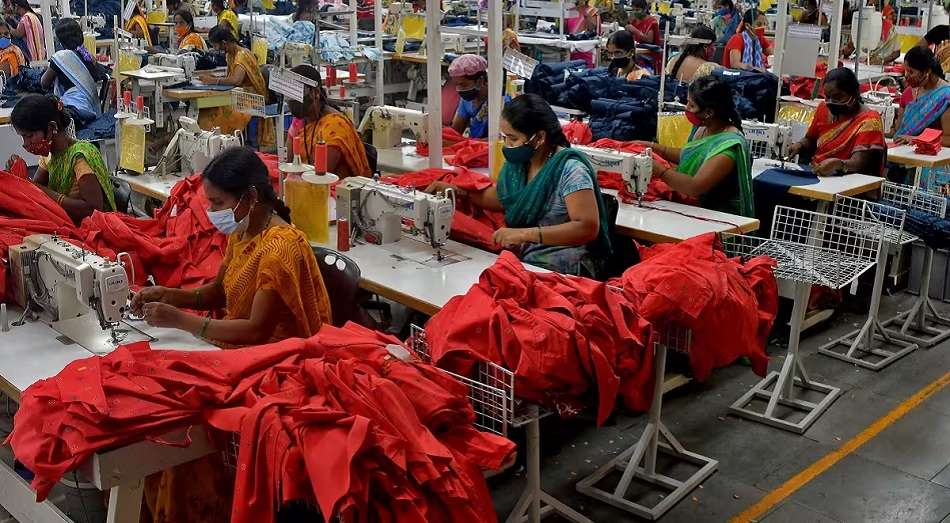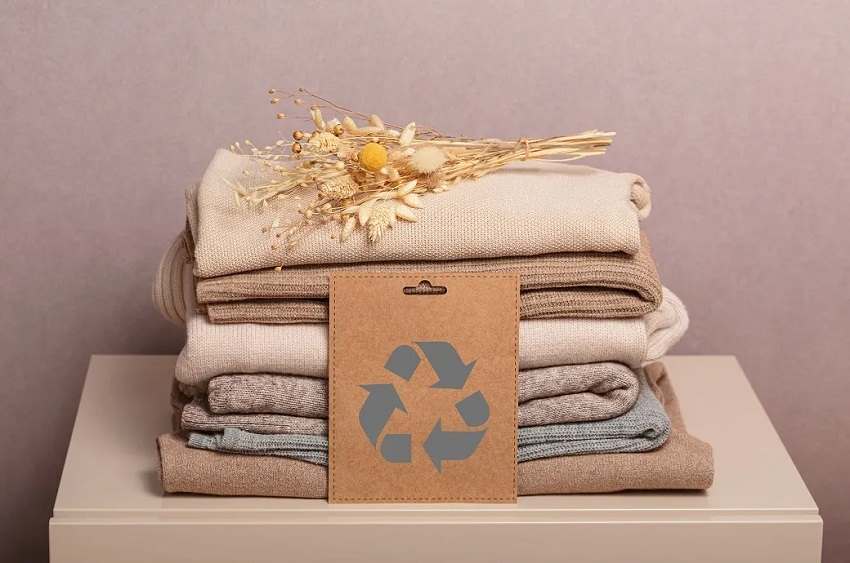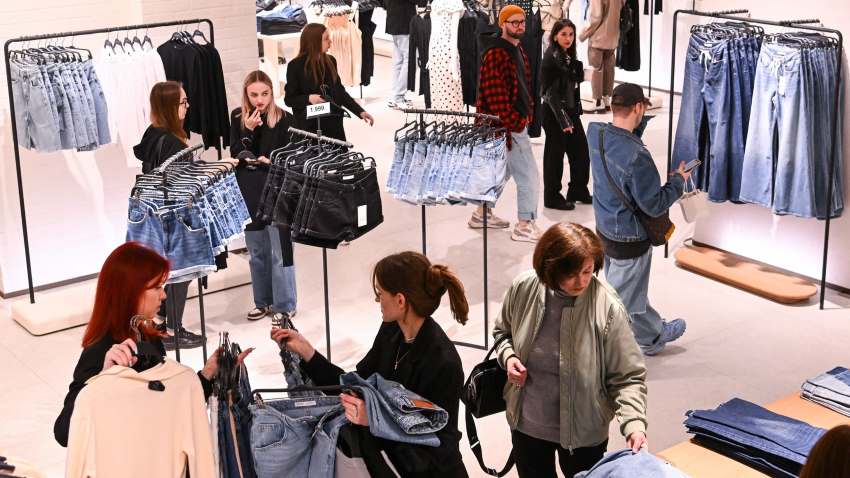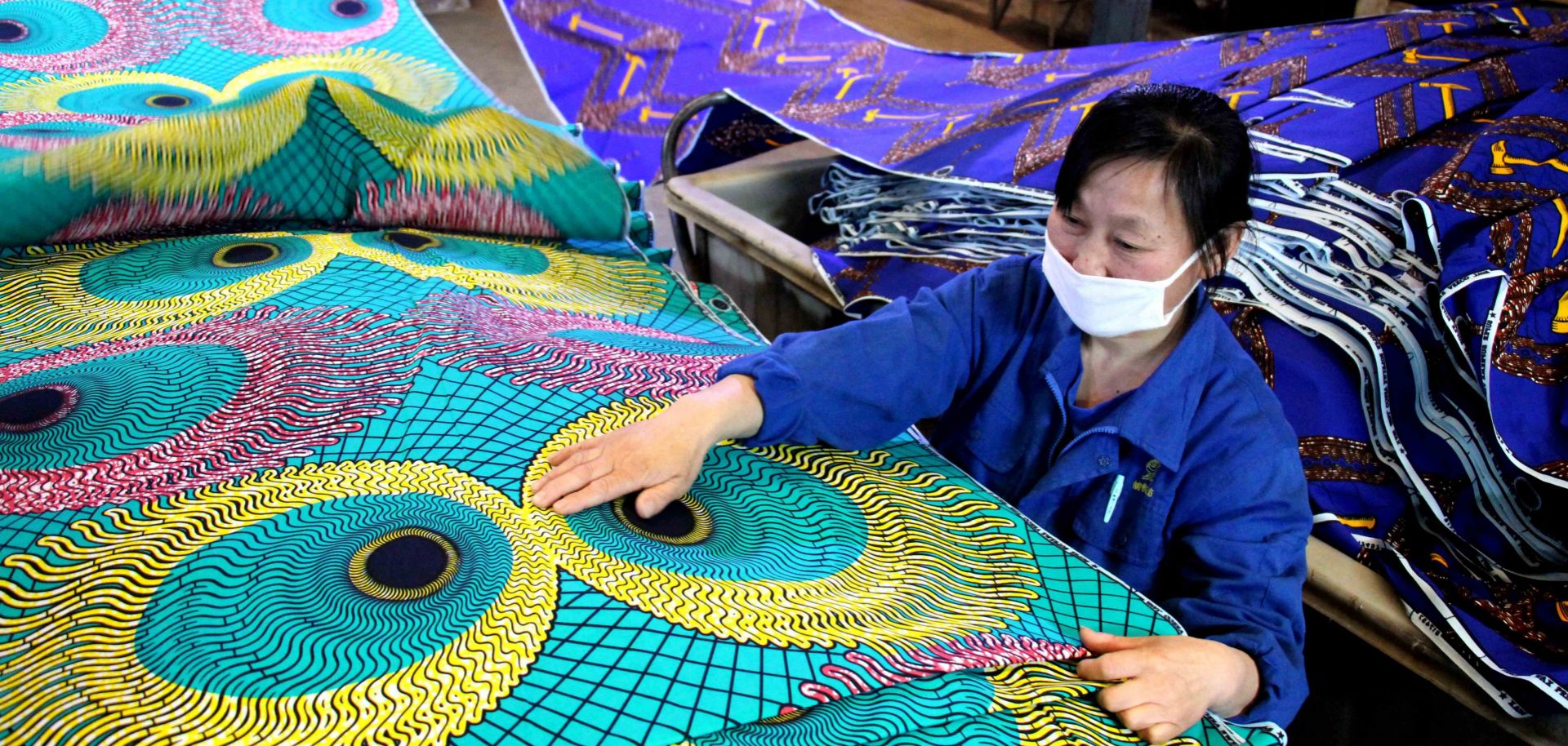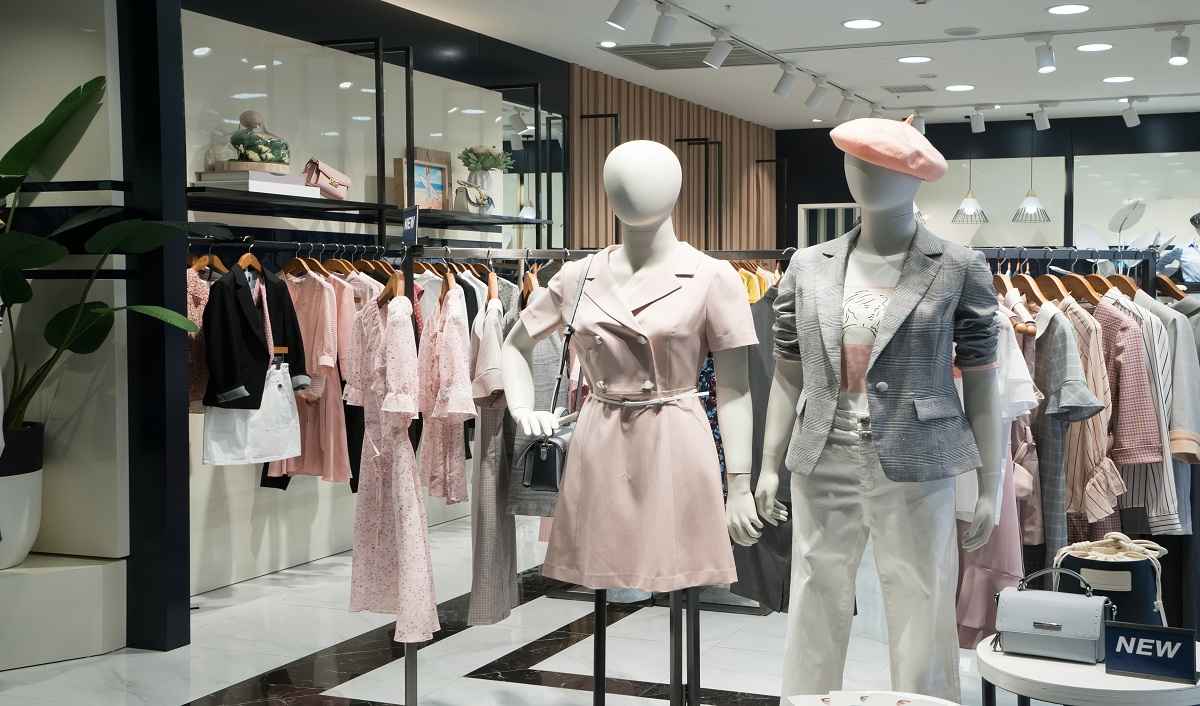FW
Indonesia will look for bigger cooperation in the textile sector at the Developing 8 Countries or D8. This is a cooperation of eight developing countries with a majority Muslim population. According to the Director General of the International Industrial Development Access Security Industry Ministry Achmad Sigit Dwiwahjono, who will lead the Indonesian delegation, in addition to textiles, some other industrial sectors will also be included.
At the meeting, Indonesia also seeks to establish cooperation in the field of ‘halal’ food products, where the forms of cooperation already conducted between Egypt and Malaysia. Minister of Industry Saleh Husin will also attend the meeting which will be attended by representatives of member countries, namely Bangladesh, Iran, Malaysia, Egypt, Nigeria, Pakistan and Turkey.
Lindex’s production of sustainable garments has gone up 64 per cent over the last year. Sustainable includes clothing items made with recycled fibers or using identity cottons such as BCI or organic cotton. Lindex is a Swedish fashion retailer. Its aim is to make 80 per cent of its garments from sustainable sources by 2020. It has already achieved a target of 42 per cent.
Lindex has started collecting discarded textiles and garments from customers through approximately 50 of its stores (which are just over 10 per cent of the store total), with future plans to scale this up. The company sees a great potential in using post-consumer recycled fibers and fabric. Its first sneaker made in upcycled denim fabric was in the market this spring. Using post-consumer recycled materials in its products will be even more important and common in the future.
Lindex has improved production processes using new tech solutions to use less water, energy and chemicals in clothing production. As a result almost all of Lindex denim is now produced with more sustainable processes as well as being made of sustainable cotton. Lindex is one of Europe's leading fashion chains, with more than 490 stores in 18 markets.
Chinese consumes about one-third of cotton’s annual global production, making it the most important market in the world. Yet China has 60 per cent of the world’s cotton stock. Cotton industry leaders worked hard for years to make cotton an honest, free trade commodity, even though it is traded among countries of different political and economic standards. Fair contract parameters and quality standards are recognized worldwide through the tireless efforts of many.
Cotton will never return to its glorious days with farming costs driving producers to more high value crops, but it would still have a place on many farms without bad Chinese economic policy. Cotton is trading at the lowest prices in seven to 12 years, depending on the marketplace. Some of the stockpiled Chinese cotton was sold at an auction last year at prices 26 per cent less than what the government paid for it. A rumored sale of more stocks this summer will likely result in greater losses.
Agriculture is often a sacrificial cow in international trade talks. It’s time for agriculture to get a seat at the head of the table. China has jeopardized world cotton production. The world needs a viable cotton industry. Cotton is being killed economically.

The global denim industry is estimated to be worth $64.1 billion by 2020. Currently, about 1.8 billion pairs of denim trousers worth $51 billion are sold annually worldwide. Denim has become a wardrobe staple across much of the world today, cutting across class, gender, and age barriers. Though Europe and the US are still the biggest markets for denims, emerging economies like China and India are witnessing a steady rise in demand. Bangladesh is not far behind. The global denim industry is estimated to be worth $64.1 billion by 2020. Currently, about 1.8 billion pairs of denim trousers worth $51 billion are sold annually worldwide.
Denim, the market still holds strong

In countries like Bangladesh, the denim-wear market is driven by increasing disposable incomes, Westernization of work culture, and ensuing rise in popularity of denims as business casual wear. In fact, the use of denim is on the rise across different platforms, including accessories, furnishings, and Indo-Western wears.
As per global industry estimates, North America is still the dominant market for the fabric, with an average American owning up to eight pairs of jeans. Europe is the second largest market, followed by Korea and Japan. In keeping with the high demand of fabric in the West, most fashion houses emerged in America and Europe. However, owing to the rising labour costs and environmental concerns of the industrial washing process that is essential for making jeans, the manufacturing of the cloth has been traditionally outsourced overseas.
Interestingly, less than 2 per cent of the denims sold in America are manufactured in the US. Initially, the US outsourced denim manufacturing to Mexico while western European countries, including Italy and France, outsourced it to East European nations like Turkey and Tunisia.
As labour costs shot up in these regions, the outsourcing was shifted to Asian countries like China. In recent times, however, owing to rising manufacturing costs, China’s hold as a dominant market player seems to be slipping. As a result, the rest of the Asian and Latin American countries, which are also known for their denim-manufacturing capacities, stand to benefit immensely. Among them is Bangladesh.
Advantage Bangladesh
Bangladesh denim industry currently comprises 26 factories with a total investment of over $834 million, according to the fourth edition brochure of the Bangladesh Denim Expo (BDE). The monthly production of denim stands at 30 million yards while the actual demand has nearly reached 60 million yards, it says. To cover this gap, the country imports 30 to 35 million yards per month worth $75 million from countries like China, India, and Pakistan, it adds.
As per Bangladesh Textile Mills Association (BTMA) data, the investment in the denim sub-sector stands at $900 million. In 2015, Bangladesh held 22.88 per cent market share in the EU and 11.35 per cent in the US denim markets, especially in jeans. Currently, about 1.8 billion pairs of denim trousers worth $51 billion are sold worldwide annually.
The country has occupied the third position in the US denim market for the last couple of years and exported denim products worth $418.42 million in 2014. Bangladesh is the second-largest contributor to the EU denim market. It shipped denim products - especially jeans - worth EUR 932.86 million to the region in 2014, marking a growth of 15.53 per cent.
Global market for denim is predicted to reach $64.1 billion by 2020. In 2013–2014, the exports of denim products to the US and EU markets rose by roughly 25 per cent, and increase every day. The worldwide denim production adds up to approximately 7 billion metres, of which 70 per cent is being produced in Asia, said the BDE fourth edition brochure.
Thus, the future of Bangladesh’s denim industry looks bright. To meet the growing international demand for the fabric, local mills are investing in imported state-of-the-art machinery, especially for weaving and processing.
Bangladesh Denim Expo
The ongoing Bangladesh Denim Expo offers international fashion buyers a one-stop sourcing platform for all aspects of denim wear. Exclusive to authorised trade visitors, the expo acts as a hub where international market players can mingle with colleagues, make new contacts, and broker deals. A total of 49 companies from 13 countries will be participating in the exhibition including, Brazil, China, Germany, India, Italy, Japan, Pakistan, Singapore, Spain, Thailand, Turkey, and Vietnam, apart from Bangladesh. The Expo’s host Chittagong-based Denim Expert, is expects around 4,000 visitors and nearly 900 companies at the flagship annual event.
The organisers expect this year’s expo to showcase the most innovative trends and techniques that would rule the denim world for the next seasons. Six seminars will be held on important issues like the current trends in the denim industry and Bangladesh’s prospect in the industry over the next five years. Industry experts will share their experiences and make recommendations for improving the denim industries here.
India has lost market share in textiles over the last two years in the European Union to Pakistan. Preference to certain countries through tax exemption in developed markets to boost trade from that country has given the later a boost.
In 2014, the European Union included Pakistan to the list of GSP which allows duty-free access to EU markets for textile exports. Consequently, exporters from Pakistan are now able to ship fabrics, made-ups and garments with no tariffs. Indian exporters, however, must pay 9.6 per cent export duty for made–ups and garments, and 6.5 to 8 per cent duty on fabric items, making exports from India more expensive.
This duty anomaly, along with other issues, has resulted in slow pick-up of garments and fabrics from India as compared to Pakistan. India has already lost market share to Pakistan in 19 textile and 18 clothing products (37 products in all) during the calendar year 2014 due to the preferential access extended by the European Union to that country under the Generalised System of Preferences (GSP) plus scheme.
Even though the textile sector is at the forefront of creating employment in India, the cotton textile business is fast losing its market share worldwide. The textile industry feels issues relating to exports such as cost of funds and adverse impact of preferential access given to competing countries need to be addressed on a war footing.
The Pakistan textile industry has been facing trouble due to delays in sales tax refunds, customs rebate and drawback on local taxes and levies. The value-added garment sector wants zero-rating status to be granted to five export-oriented sectors to boost the country’s exports. The industry says the zero rating No Payment No Refund system for exports should be implemented forthwith since collecting sales tax and then refunding is not only an exercise in futility but is time consuming and also burdens foreign exchange earning exporters with unnecessary hurdles.
Pakistan’s exports have declined 12.92 per cent in the first nine months of the current fiscal year. Apparently only a few payments below Rs 5 million against those refund payment orders issued till August, 2015 have been paid to businessmen. For exporters with claims of over Rs 5 million, initially they had been promised payments in the form of bonds and later payments in cheque but no payments have been made to them as yet.
A significant number of textile mills in key manufacturing hubs of Pakistan like Lahore, Faisalabad, Multan and Karachi are closing down because they are unable to compete with low cost rivals like Bangladesh and Vietnam.
The labour conditions in Indian textile is now on a wide check, taking the example of Apple Inc, which tackled poor wages and working conditions at the factories of its partner Foxconn in China after criticism from consumers among others.
Following the 2013 Rana Plaza disaster in Bangladesh, in which 1,135 workers were killed, many of them employed by Western brand suppliers; the conditions of garment workers in South Asia have come under sharp scrutiny. In India, legislation exists against bonded labour and child labour, but enforcement is weak.
Mona Gupta, a senior official at India’s Apparel Export Promotion Council feels, the industry has the most invisible supply chain. It is also mostly unorganised, which makes it harder to map and regulate. Domestic consumers should raise their voice. If they insist on buying only ethical products, that will bring pressure on manufacturers.
According to the International Labour Organisation, 21 million people are victims of forced labour globally, while the Global Slavery Index says there are 36 million slaves in the world, half of them in India. As per estimates the domestic market accounts for more than 40 per cent of the industry’s revenue. Hundreds of small and medium-sized enterprises use forced labour and treat workers poorly, with abuses ranging from withheld salaries to debt bondage.
A report that highlighted leading luxury and fast-fashion brands for lack of visibility in their supply chains has been roundly criticised by companies themselves as well as other nongovernmental organizations involved with workers’ rights and supply chain issues. The report by the London-based group called Fashion Revolution and Ethical Consumer, which is a nonprofit magazine and Web site, created a Fashion Transparency Index that ranked more than 40 global retail companies based on their level of transparency and support of workers’ rights. Based on its own rankings, the group criticised luxury brands including Chanel, Hermès, Prada and Louis Vuitton for what it claimed was a lack of transparency, while praising Levi Strauss, Inditex, Nike, H&M and Adidas. The critical study was reported online by Vice and also picked up by Vogue.com.
Incidentally, the index was based on a methodology that immediately stirred criticism. WWD contacted a series of industry organizations that work on sustainability initiatives but they declined to comment. A spokesperson from one of the organizations said it is really hard to comment on research that is so poorly executed and tells us nothing.
The group said that in the report that it received 10 questionnaires from brands and retailers out of a total of 40 that were sent to companies. While 10 of the companies received scores based on their replies to the questionnaires and other publicly available information, the other 30 companies were scored based solely on publicly available information on Web sites and in annual reports, from which the group’s researchers drew their own conclusions.
The European Union (EU) has said it will remain closely engaged to bring lasting improvement to Bangladesh's garment industry and helping to spur prosperity into Bangladesh through EU's open market, acknowledging tangible progress on the ground. A joint statement of the European Commission marking the third anniversary of Rana Plaza tragedy said that the EU's commitment remains unchanged.
Commissioner for International Cooperation and Development, Neven Mimica, Commissioner for Employment, Social Affairs, Skills and Labour Mobility, Marianne Thyssen and Commissioner for Trade Cecilia Malmstrom jointly issued the statement, from Brussels. They said, an active engagement of the EU, Bangladesh and other partners concerned has brought ‘tangible progress’ on the ground.
Meanwhile, the Bangladesh Sustainability Compact opened a dialogue and supported exchanges with stakeholders, including trade unions, employers, buyers and NGOs in the EU, as well as in Bangladesh. Besides, essential reforms regarding effective respect of trade union rights and promotion of genuine social dialogue are still needed to ensure a better future for Bangladeshi garment industry workers, said the three Commissioners.
Jeanologia the Spanish specialist and innovator of sustainable technologies for garment finishing is currently exhibiting at the denim expo being held in Bangladesh from April 25 to 26, 2016. The company is looking at leading the transformation of Bangladesh textile industry towards sustainability. It wants to demonstrate that technology can increase the efficiency of zero pollution production without compromising on health of workers and the environment. The company has developed a combination of technologies like laser, dry and wet ozone G2 and eFlow nano bubbles which ensure zero pollution in the production of denim.
Its latest technology, Light PP Spray, eliminates the dangerous chemical sprayer conventionally used by denim processing units. The elimination of potassium permanganate spray by the use of laser is a milestone for the textile industry because it transforms the process of jeans production in the world. Jeanologia has managed to replace all hazardous technology techniques for workers and emissions of the textile industry that, in the last four years, have been reduced to zero per cent.
The company feels that once sustainable solutions replace traditional washing, water and chemical consumption can be reduced by 90 per cent and energy consumption by 50 per cent.
www.jeanologia.com/

